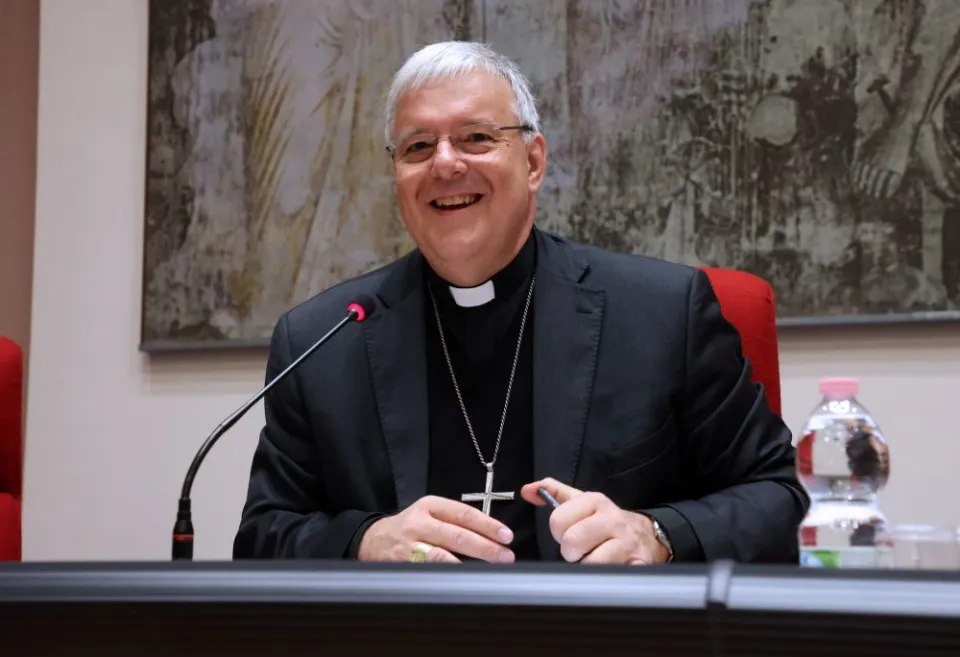
The Bocconian Bishop: Enjoy the University Experience to the Full
If you ask him for an anecdote about his time as a student at Bocconi, Michele Tomasi remembers when he asked his advisor, Stefano Zamagni, how long his thesis should be: "He took the two volumes of the Milan phonebook and said: 'If you want to make it long, put these both together,' adding: 'Your thesis needs to be long enough.' It was a life lesson that I’ll never forget." Michele Tomasi is now the Bishop of Treviso — a position he has held since 2019 — and is known as the 'Bocconi' bishop. His passion for philosophical-economic studies led him to choose the DES program, graduating in 1991, but his vocation fully blossomed only at the end of his university career, as he recalls in this interview for the Welcome Days event.
At the end of the summer, first-year students will arrive at Bocconi to start a new program. What message do you want to send them?
My years at Bocconi were wonderful, both in terms of what I was studying and in terms of personal growth. I learned a lot in my studies and I was constantly learning on a personal level through dialogue with classmates and professors. I would tell young people to open up, to debate, to fully seize all the opportunities that Bocconi offers. This includes any elective courses that may not be relevant to your course of study but that contribute to enriching you as a human being. And to talk to professors as well. At university, people usually have an attitude of being open in general, open to debate and accepting of other people's ideas that’s not easy to find elsewhere.
Another topic you hold dear is that of going to university outside your hometown.
Yes. When I’m asked, I always recommend going to study in another city, another region, even abroad. In Veneto we have excellent universities, but studying somewhere else is a more complete and all-encompassing experience. Being away from home pushes you to build relationships, to live and to share. Staying at home, on the other hand, pushes you to isolate yourself.
How do today's young people differ from you and the 20 year olds of that time?
I often get in touch with young graduates and university students, including from Bocconi. They are really smart, they have a lot more tools than we did. I think of all the technology they have access to, they have very strong ideals and aspirations. But there is also a downside. Having everything 'within reach of your mobile phone' leads to isolation, and it brings out everyone’s individualistic side. For us it was more instinctive to get together, to spend time with each other, to form groups, both for study and for anything related to our interests. I often see young people who have a lot of time to spend but can't do it together. This is why I recommend studying outside your hometown, to have an even stronger reason to get together and share an experience.
Regarding this, you like to remember another anecdote...
When I was at Bocconi, they decided to keep the library open in the evenings for the first time, until 11pm. Especially when there were upcoming exams, it became not only the place to meet to study together, but also to plan other activities, such as getting organized to buy tickets for a concert.
Compared to when you were studying, today the university is fully international, a large and diverse community: in terms of culture, experiences and even religious beliefs...
This is a huge opportunity for young people. At university there is an opportunity to establish more constructive dialogue between people, there are more opportunities to get to know each other, to respect each other and to debate. I think that if people have a strong identity from a religious point of view, they are less afraid of meeting another person who also has a strong identity. The clash occurs when there is a weak party who is afraid of the other.
Tell us about your vocation. When were you fully aware of it?
I already had a feeling in middle school. I talked about it with my parish priest, who advised me to think about school, about my life, and not to be in a hurry. We could talk about it later. And in fact I went on with my normal life until almost the end of university. In Milan I lived in the Diocese boarding house, where I also had the opportunity to discuss my faith. Then I graduated, did my civil service and, at the age of 27, entered the seminary in Bressanone.
If you had not followed your vocation, what would Michele Tomasi be doing now?
When I attended Bocconi, my ambition was to pursue an academic career. I think I would have gained experience, perhaps a period of study abroad, in the US or Germany, then, in line with my skills and inclinations, I would have completed a specialization. I graduated with a thesis on the history of economic thought, I think that would have been my field. Yes, Michele Tomasi would probably be an economist today.
